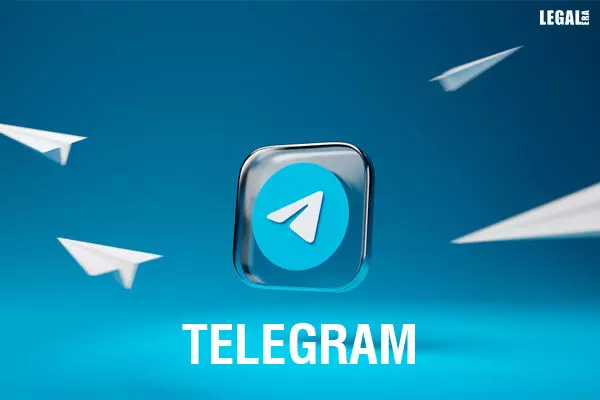- Home
- News
- Articles+
- Aerospace
- Artificial Intelligence
- Agriculture
- Alternate Dispute Resolution
- Arbitration & Mediation
- Banking and Finance
- Bankruptcy
- Book Review
- Bribery & Corruption
- Commercial Litigation
- Competition Law
- Conference Reports
- Consumer Products
- Contract
- Corporate Governance
- Corporate Law
- Covid-19
- Cryptocurrency
- Cybersecurity
- Data Protection
- Defence
- Digital Economy
- E-commerce
- Employment Law
- Energy and Natural Resources
- Entertainment and Sports Law
- Environmental Law
- Environmental, Social, and Governance
- Foreign Direct Investment
- Food and Beverage
- Gaming
- Health Care
- IBC Diaries
- In Focus
- Inclusion & Diversity
- Insurance Law
- Intellectual Property
- International Law
- IP & Tech Era
- Know the Law
- Labour Laws
- Law & Policy and Regulation
- Litigation
- Litigation Funding
- Manufacturing
- Mergers & Acquisitions
- NFTs
- Privacy
- Private Equity
- Project Finance
- Real Estate
- Risk and Compliance
- Student Corner
- Take On Board
- Tax
- Technology Media and Telecom
- Tributes
- Viewpoint
- Zoom In
- Law Firms
- In-House
- Rankings
- E-Magazine
- Legal Era TV
- Events
- Middle East
- Africa
- News
- Articles
- Aerospace
- Artificial Intelligence
- Agriculture
- Alternate Dispute Resolution
- Arbitration & Mediation
- Banking and Finance
- Bankruptcy
- Book Review
- Bribery & Corruption
- Commercial Litigation
- Competition Law
- Conference Reports
- Consumer Products
- Contract
- Corporate Governance
- Corporate Law
- Covid-19
- Cryptocurrency
- Cybersecurity
- Data Protection
- Defence
- Digital Economy
- E-commerce
- Employment Law
- Energy and Natural Resources
- Entertainment and Sports Law
- Environmental Law
- Environmental, Social, and Governance
- Foreign Direct Investment
- Food and Beverage
- Gaming
- Health Care
- IBC Diaries
- In Focus
- Inclusion & Diversity
- Insurance Law
- Intellectual Property
- International Law
- IP & Tech Era
- Know the Law
- Labour Laws
- Law & Policy and Regulation
- Litigation
- Litigation Funding
- Manufacturing
- Mergers & Acquisitions
- NFTs
- Privacy
- Private Equity
- Project Finance
- Real Estate
- Risk and Compliance
- Student Corner
- Take On Board
- Tax
- Technology Media and Telecom
- Tributes
- Viewpoint
- Zoom In
- Law Firms
- In-House
- Rankings
- E-Magazine
- Legal Era TV
- Events
- Middle East
- Africa
Kerala High Court Disposes PIL Seeking to Block Telegram After Petitioner Agrees to Approach Grievance Officer Under IT Rules 2021

Kerala High Court Disposes PIL Seeking to Block Telegram After Petitioner Agrees to Approach Grievance Officer Under IT Rules 2021
The Kerala High Court disposed a Public Interest Litigation (PIL) seeking to block access to the instant messaging service 'Telegram' in India for circulation of inappropriate obscene promoted through the internet based mobile and desktop application.
The division bench comprising of Chief Justice Mr. S.Manikumar And Justice Murali Purushothaman disposed of the PIL on the submission of the Central Government Counsel that the petitioner can approach the Grievance Officer of the messaging service under Information Technology (Intermediary Guidelines and Digital Media Ethics Code) Rules, 2021 (IT Rules, 2021), for removal of objectionable content.
In the present case, a PIL was filed by a woman aggrieved by the circulation of obscene content featuring women and children on the messaging application.
According to her, 'Telegram' is used for promoting international terrorism as well as for creating civil disruptions and that it has no nodal officer or a registered office in India and it is operating without license from any authorities and the investigating agencies are unable to initiate proper investigation or to trace out the culprits since it provides a user not to disclose his identity.
Advocate Jaishankar V. Nair appearing for the Centre, filed a statement explaining in detail the grievance redressal mechanism for removal of objectionable content. It was highlighted that under IT Rules 2021, the petitioner can approach the Grievance Officer in case of violation of any provisions of the Rules.
Clause (a) of sub-rule (2) of Rule 3 of the Information Technology (Intermediary Guidelines and Digital Media Ethics Code) Rules, 2021 provides that the intermediary shall publish the name and contact details of the Grievance Officer as well as the mechanism by which a user or victim may complain against violation of the provisions of the said rules.
Under Rule 3(1)(b), an intermediary must take measures to not publish or host information that is obscene, pornographic, or pedophilic. Intermediaries are also required to take specific care to not host information that threatens the unity, security, or sovereignty of the country. In case of violation of the Rules, a user can use the mechanism prescribed for removal of such content.
The Counsel further submitted that provision exists under law for the aggrieved person to pursue removal of content broadly, the following options are available to an individual aggrieved by the hosting of unlawful content on an intermediary platform for pursuing removal of the same or action against the intermediary:
a) File a complaint to the Grievance Officer of the intermediary platform; and/or
b) Lodge a complaint with the law enforcement agency having jurisdiction in respect of a cognizable offence or on the Cybercrime Reporting Portal (www.cybercrime.gov.inor toll-free helpline 1930); and/or
c) Approach a competent court of law for the relief(s) sought.
The Court disposed the PIL on the submission of the counsel for the petitioner that she would make use of the grievance redressal mechanism under the 2021 Rules by approaching the Grievance Officer for ‘Telegram.’



